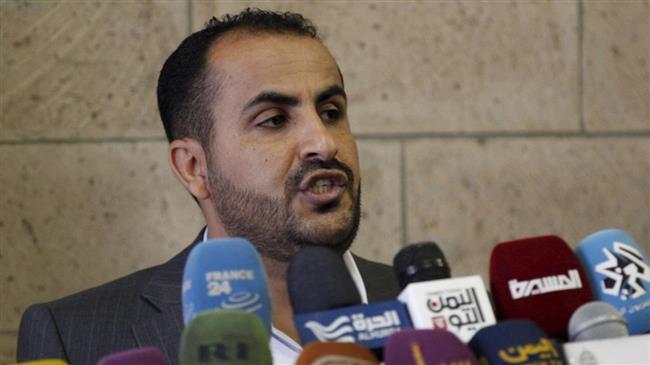
RNA - Mohammed Abdul-Salam, the movement’s spokesman, made the remarks in a statement carried by Yemen's Arabic-language al-Masirah satellite television network on Sunday, saying in only one instance Riyadh had given as much as “$30 million to a foreign satellite company to block a Yemeni news channel for just 30 days.”
He added that the so-called military coalition, led by Saudi Arabia, was “sparing no effort” to muffle the true voice of Yemeni people calling out through the country’s satellite television channels and radio stations.
Abdul-Salam also said that all attempts made by the “invaders” to target Yemeni media were constantly being foiled by the media bureau of Yemen’s Operations Command through revealing their true nature and the harm and misery that they had brought to Yemen so far.
“What the enemy is doing against the anti-invasion media outlets, either Yemeni or non-Yemeni, are mere oppressive acts aimed at obscuring the facts and distorting the reality, similar to what they have done and are doing against the Palestinian cause,” he added.
Abdul-Salam’s remarks were a direct response to a conference held in the Saudi city of Jeddah a day earlier in which ministers of mass media and information from the military coalition’s member states and their allied journalists examined various ways to fight against Yemeni media.
The Houthi movement, which is a significant aid to the Yemeni army in defending the country against the invading forces, has been running state affairs in the absence of an effective administration during the past three years.
Saudi Arabia and its allies launched the war on Yemen in March 2015 to reinstall the former Saudi-backed Hadi regime and crush the Houthi movement.
The Yemeni Ministry of Human Rights announced in a statement on March 25 that the war had left 600,000 civilians dead and injured until then. The war and an accompanying blockade have also caused famine across Yemen.
In June 13, the invaders launched a major offensive to take the Houthi-held Hudaydah, a densely-populated city and the war-torn country's most vital port, which is the entry point for 70 percent of the impoverished country's imports. The offensive, however, failed to achieve its goal, thanks to firm resistance mounted by Yemeni troops and Houthi fighters in defense of the city.
According to Press TV, the Saudi aggression has also taken a heavy toll on the country's facilities and infrastructure, destroying many hospitals, schools, and factories.
Since 2016, the impoverished nation has also been grappling with a deadly cholera outbreak, which has already killed thousands of people.
Several Western countries, the US and the UK in particular, are accused of being complicit in the aggression as they supply the Riyadh regime with advanced weapons and military equipment as well as logistical and intelligence assistance.
847/940